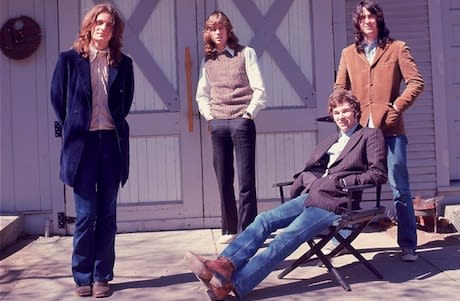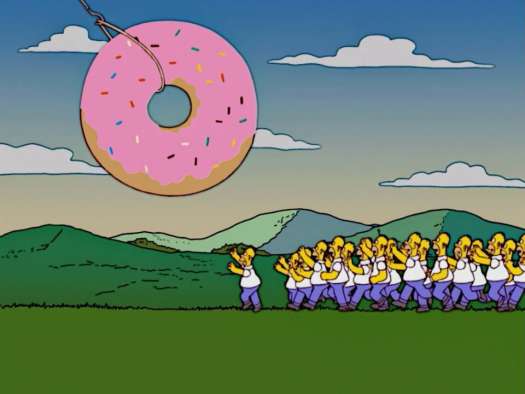The story of '70s Memphis rock group Big Star is an admittedly difficult one to tell, as they were only a truly cohesive band for one magnificent album, before fracturing and ultimately achieving cult status years later. The task for meandering documentary Big Star: Nothing Can Hurt Me is all the more unenviable because its two key members, Alex Chilton and Chris Bell, are both no longer alive to provide any insight.
As if to compensate for these missing interviews with the nucleus of their brilliance, the film inundates the viewer with a disorienting number of people that were in, and around, their orbit. Aside from Big Star bassist Andy Hummel and drummer Jody Stephens's valuable recollections of events, key figures from Ardent Records detail how the development of the recording studio was instrumental to the band's creative process.
Following the release of their debut (the ironically titled #1 Record) and after an affiliation with soul label Stax had failed to garner that album much attention, a period of disillusionment and despair caused founding member and songwriter Chris Bell to quit the group. While Bell's largely unsuccessful attempts at a solo career were permanently derailed when he joined the likes of Jimi Hendrix and Kurt Cobain in dying at age 27 in a car accident, Chilton indulged in increasingly experimental and erratic material within (and later without) the group.
The film's best passages center upon the recording of classic songs like the cascading "The Ballad of El Goodo" and the tender, disarming "Thirteen," but even these recollections are tinged more with reverence than any revealing information about their genesis. This is a small quibble when compared to how the narrative momentum is derailed by Chilton's immersion in punk music, turning his back on his involvement with Big Star for years before reforming the band with a whole new line-up in 1993 with little explanation.
Towards the end, there are requisite platitudes by contemporary musicians like R.E.M.'s Mike Mills and members of the Flaming Lips, Jesus & Mary Chain and Teenage Fanclub, but the central relationship between Bell and Chilton remains frustratingly enigmatic. All that is certain when hearing their isolated vocal tracks in perfect harmony is how, for a short time, they managed to harness something indescribable and magical in their music.
The tragedy is that they failed to sustain for very long this ineffable quality that characterizes the greatest rock'n'roll, but their enduring legacy is based upon the fact that few are able to even accomplish such a feat in the first place.
(Kinosmith)As if to compensate for these missing interviews with the nucleus of their brilliance, the film inundates the viewer with a disorienting number of people that were in, and around, their orbit. Aside from Big Star bassist Andy Hummel and drummer Jody Stephens's valuable recollections of events, key figures from Ardent Records detail how the development of the recording studio was instrumental to the band's creative process.
Following the release of their debut (the ironically titled #1 Record) and after an affiliation with soul label Stax had failed to garner that album much attention, a period of disillusionment and despair caused founding member and songwriter Chris Bell to quit the group. While Bell's largely unsuccessful attempts at a solo career were permanently derailed when he joined the likes of Jimi Hendrix and Kurt Cobain in dying at age 27 in a car accident, Chilton indulged in increasingly experimental and erratic material within (and later without) the group.
The film's best passages center upon the recording of classic songs like the cascading "The Ballad of El Goodo" and the tender, disarming "Thirteen," but even these recollections are tinged more with reverence than any revealing information about their genesis. This is a small quibble when compared to how the narrative momentum is derailed by Chilton's immersion in punk music, turning his back on his involvement with Big Star for years before reforming the band with a whole new line-up in 1993 with little explanation.
Towards the end, there are requisite platitudes by contemporary musicians like R.E.M.'s Mike Mills and members of the Flaming Lips, Jesus & Mary Chain and Teenage Fanclub, but the central relationship between Bell and Chilton remains frustratingly enigmatic. All that is certain when hearing their isolated vocal tracks in perfect harmony is how, for a short time, they managed to harness something indescribable and magical in their music.
The tragedy is that they failed to sustain for very long this ineffable quality that characterizes the greatest rock'n'roll, but their enduring legacy is based upon the fact that few are able to even accomplish such a feat in the first place.




